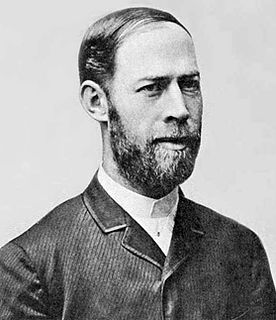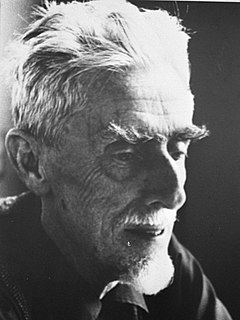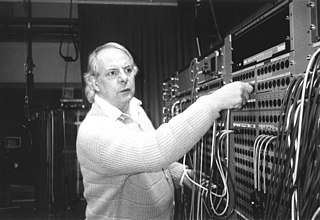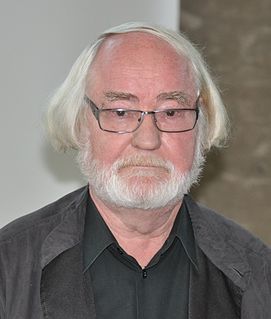A Quote by Henri Bergson
If reality impacted directly on our senses and our consciousness, if we could have direct communication between the material world and ourselves, art would be unnecessary.
Related Quotes
Outside our consciousness there lies the cold and alien world of actual things. Between the two stretches the narrow borderland of the senses. No communication between the two worlds is possible excepting across the narrow strip. For a proper understanding of ourselves and of the world, it is of the highest importance that this borderland should be thoroughly explored.
Today, when we look at a brain, we see an intricate network of billions of neurons in constant, crackling communication, a chemical labyrinth that senses the world outside and within, produces love and sorrow, keeps our hearts beating and lungs breathing, composes our thoughts, and constructs our consciousness.
Mysterious spaces cause us to turn inward. Amid a rich upwelling of association, we encounter many aspects of ourselves. As we grow still, we come in contact with a unified, empty, yet full ground of our being. As our consciousness grows more spacious, we find connections between us and the wider world, a shared greater reality.
Since consciousness is the basis of all reality, any shift in consciousness changes every aspect of our reality. Reality is created by consciousness differentiating into cognition, moods, emotions, perceptions, behavior, speech, social interactions, environment, interaction with the forces of nature, and biology. As consciousness evolves, these different aspects of consciousness also change.
No totalitarian censor can approach the implacability of the censor who controls the line of communication between the outer world and our consciousness. Nothing is allowed to reach us which might weaken our confidence and lower our morale. To most of us nothing is so invisible as an unpleasant truth.
When we experience a film, we consciously prime ourselves for illusion. Putting aside will and intellect, we make way for it in our imagination. The sequence of pictures plays directly on our feelings. Music works in the same fashion; I would say that there is no art form that has so much in common with film as music. Both affect our emotions directly, not via the intellect. And film is mainly rhythm; it is inhalation and exhalation in continuous sequence.
This world, this universe which our senses feel, or our mind thinks, is but one atom, so to say, of the Infinite, projected on to the plane of consciousness; and within that narrow limit, defined by the network of consciousness, works our reason, and not beyond. Therefore, there must be some other instrument to take us beyond, and that instrument is called inspiration.
Many quantum physics are realizing or hypothesizing that consciousness is not a byproduct of evolution as has been suggested. Or for that matter, an expression of our brains, although it expresses itself through our brains. But consciousness is the common ground of existence that ultimately differentiates into space, time, energy, information and matter. And the same consciousness is responsible for our thoughts, for our emotions and feelings, for our behaviors, for our personal relationships, for our social interactions, for the environments that we find ourselves in, and for our biology.
According to the true Indian view, our consciousness of the world, merely as the sum total of things that exist, and as governed by laws, is imperfect. But it is perfect when our consciousness realizes all things as spiritually one with it, and therefore capable of giving us joy. For us the highest purpose of this world is not merely living in it, knowing it and making use of it, but realizing our own selves in it through expansion of sympathy; not alienating ourselves from it and dominating it, but comprehending and uniting it with ourselves in perfect union.








































